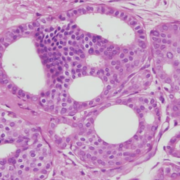23 June 2016
Many patients realize that follow up appointments with their treating doctors are a routine part of cancer care. However, I am occasionally asked by patients why they need to continue seeing me or their oncologist after treatment has ended.
A recently published study demonstrates that many patients do not understand why follow up care is important. Dr. Annette Berendsen, of the University Medical Center Groningen in The Netherlands, interviewed 61 women with a history of early-stage breast cancer, to determine what they thought the aims of follow up were. These women had been treated on average 7 years prior to being surveyed.
Dr. Berendsen and her colleagues found that most of the women thought that follow up was to detect recurrence and to receive reassurance as well as psychological support. However, 12 of the 61 patients interviewed stated that they were unsure about the purpose of follow up, and that some women incorrectly believed that breast cancer could not recur after 2-5 years of follow up.
According to the American Society of Clinical Oncology, the purpose of follow up care is to “keep patients in good health, manage side effects from treatment, find out if cancer has returned, and screen for other types of cancer, along with providing emotional support.”
As physicians, it is important that we educate patients about why follow up is important, signs and symptoms to look for, and the role of various tests. The National Comprehensive Cancer Network publishes guidelines for patients with breast cancer. The table below notes the follow up recommendations for patients with Stage I and II breast cancer. Patients should be encouraged to ask questions if they are not sure why office visits or tests are recommended.










